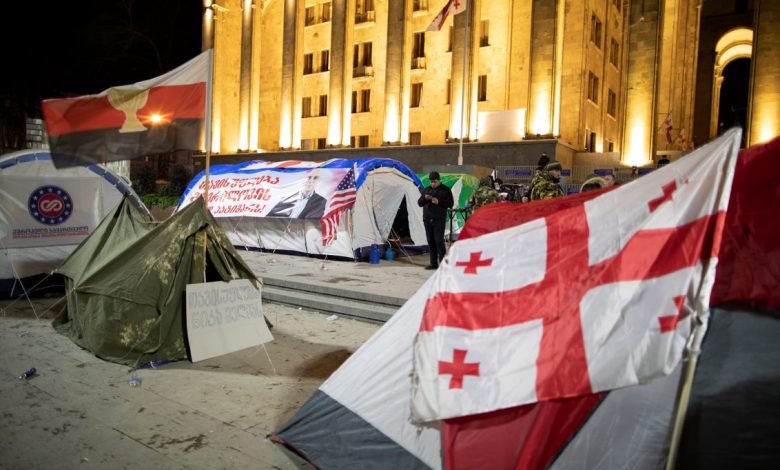
Opposition Warns Disobedience, Large-Scale Rally on May 15
On March 20, Georgian opposition leaders announced their plans outside the Parliament building, including working in an “emergency mode” and a large-scale rally on May 15 in Tbilisi.
Zaal Udumashvili of the United National Movement, the largest opposition party, said the opposition will work in an emergency mode for the next two months and tour around the country to convince the citizens that “the truth is behind us.” According to Udumashvili, the process will culminate with the large-scale rally in Tbilisi on May 15.
“The Georgian Dream turned its back to Europe, and refused to end once and for all polarization, that reached dangerous levels, and acute political crisis,” he asserted.
European Georgia’s Gigi Ugulava, former Tbilisi Mayor, noted on his part, that the ruling party founder Bidzina “Ivanishvili openly said no to the West today.”
“This person [Ivanishvili] will go away with peaceful elections… We wish these elections to be scheduled through the deal, but if no deal takes place, these elections will be scheduled with force,” Ugulava warned, adding that “this will be forced by the people that will come out [to the streets] in their villages and towns.”
Noting that “there will be an all-embracing protest and disobedience,” Ugulava said, “no West can help us if we do not move [forward] ourselves.”
The announcement comes as the opposition and the Georgian Dream could not strike a deal during the EU’s week-long mediation efforts in Tbilisi. Christian Danielsson, European Council President Charles Michel’s personal envoy to mediate Georgia’s political crisis, left Tbilisi yesterday, without managing to bring the opposing sides to an agreement, including over snap elections and the release of alleged political prisoners.
President Michel initiated the mediation on March 1, during his Tbilisi visit, to resolve the deadlock after the detention of top opposition leader Nika Melia only a few hours after PM Irakli Garibashvili’s approval as Prime Minister. But the post-election crisis began a few months before, as the major opposition parties continue their refusal to enter the new Parliament, citing “fraudulent” October 2020 general elections.
This post is also available in: ქართული Русский